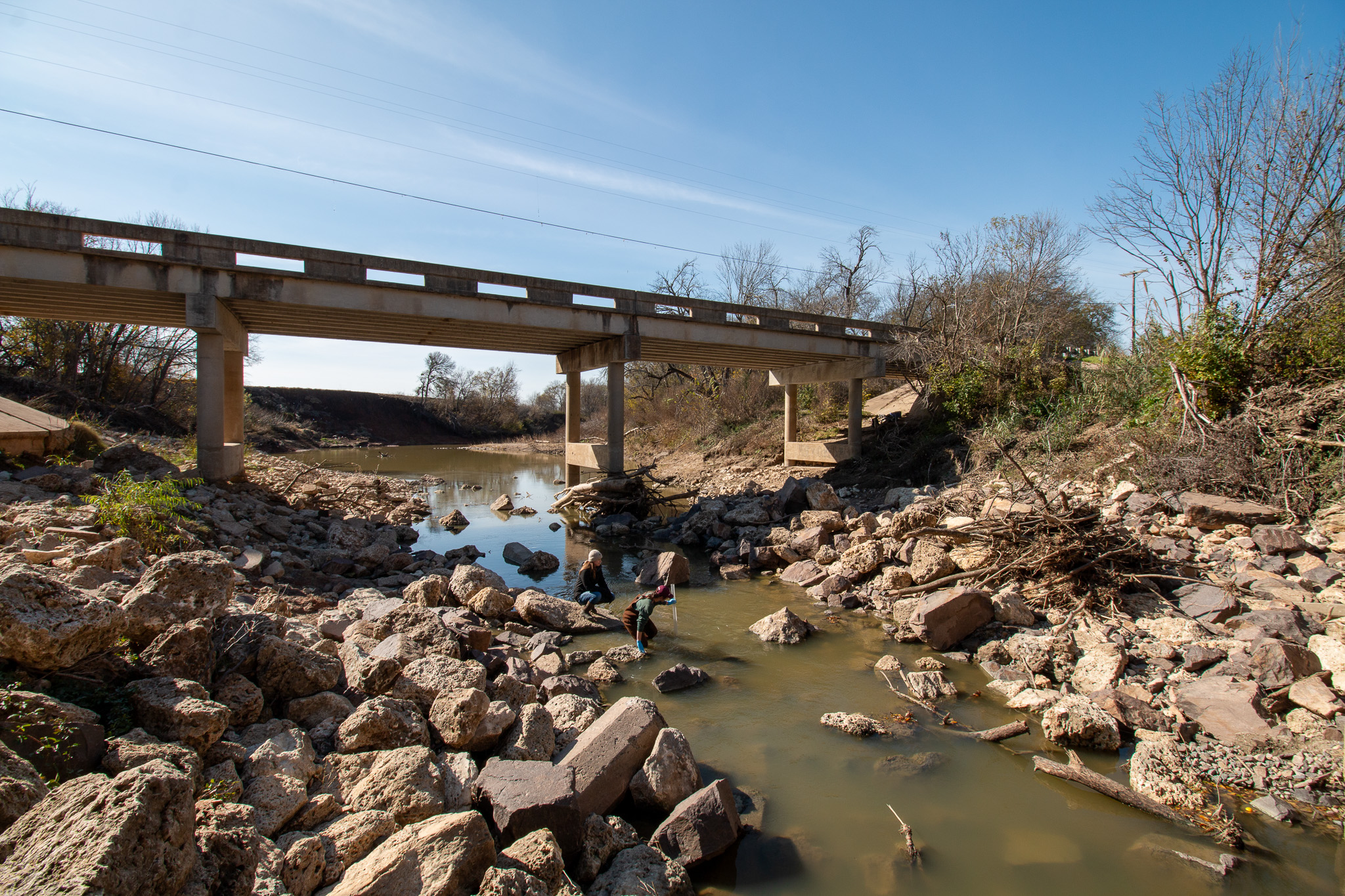
News
Stay informed about Texas water research and education with TWRI’s news team.
-
Private water well screenings set for Hays County March 4-5

Residents in Hays County are invited to water well screenings and a results meeting.
-
Public meeting set for Brushy Creek Watershed Protection Planning

Community members and stakeholders are invited to attend a public meeting focused on the health of the Brushy Creek watershed in Williamson and Milam counties on Feb. 19, from 6-7:30 p.m.
-
TWRI and Texas A&M AgriLife Lubbock Center honored with Collaboration Award

The Texas A&M AgriLife Research Director’s Awards recognized TWRI and the Texas A&M AgriLife Research and Extension Center in Lubbock with the 2025 Collaboration Award.
-
Top 10 TWRI articles of 2025

Reflecting on a productive year, the Texas Water Resources Institute team is sharing our top 10 most-read articles, including content from the summer 2025 issue of txH2O and TWRI News.
-
New researchers join TWRI

Gabriela Suchiapa Magdaleno, Ph.D., and Millicent Oyugi, Ph.D., have joined TWRI as postdoctoral research associates.
-
Roundtable covers Texas Flood Plan and stormwater management

Watershed coordinators and water resource professionals gathered in Fayetteville, Tx on Nov. 12 to talk Texas Flood Planning and stormwater management at the latest Texas Watershed Coordinator Roundtable.
-
Berthold receives Special Achievement Award from Soil and Crop Sciences

The Department of Soil and Crop Sciences at Texas A&M University recently awarded a Special Achievement Award for Research and Extension Collaboration to Allen Berthold, Ph.D., TWRI associate director.
-
Research roundup: recent water research from around Texas

Catch up on the latest peer-reviewed research on Texas water from throughout the state.
-
Texas Water Journal publishes new legal review in Volume 17

The Texas Water Journal has published a new article in Volume 17, a legal review titled “The Texas Supreme Court’s Decision Concerning Ownership of Produced Water in Cactus Water Services LLC v. COG Operating LLC: When Is Water Not Water?,” by Joshua Katz.
-
Meet a scientist: Gurjinder Baath

Gurjinder Baath, Ph.D., a Texas A&M assistant professor and researcher, combines his passion for agriculture and technology to improve farming techniques and crop yield.
Archive
Tags
Agriculture Best Management Practices AgriLife Center Dallas Allen Berthold annual report aquifer Arroyo Colorado BGI Big Elm Creek blue-green infrastructure climate Dallas Center Davidson Creek drinking water Faculty Fellows floods Fouad Jaber Giovanni Piccinni green infrastructure green stormwater infrastructure groundwater GSI Healthy Lawns and Healthy Waters HLHW Hurricane hurricane preparedness irrigation Lavaca River Lucas Gregory Matagorda Basin Media Appearances medina river Meet a scientist Middle Yegua Mills Scholarships National Competitive Grant Program Navasota River Ogallala Aquifer Ogallala Aquifer Program Ogallala Water Coordinated Agriculture Project OSSF Permanent Forum of Binational Waters PFAS photo essay rainwater harvesting research research roundup Rio Grande riparian Rosario Sanchez Septic System septic system maintenance state water plan Texas+Water Texas Legislature Texas plus Water Texas Riparian and Stream Ecosystem Education Program Texas Riparian Association Texas Water Development Board Texas Water Journal texas water resources institute Texas Watershed Coordinator Roundtable Texas Watershed Planning Program Texas Watershed Steward Texas Well Owner Network training transboundary aquifer Transboundary Aquifer Assessment Program transboundary groundwater Tres Palacios Creek Tres Palacios watershed Turfgrass turf management TWON twri txh2o txH2O highlight urban riparian Urban Riparian and Stream Restoration Program Urban Water Urban WISH USGS water conservation Water Daze Water Lecture Speaker Series water management water quality water quality monitoring Water Seed Grant watershed Watershed Protection Plan water well water well screenings we're hiring Well Educated Well Informed well water screenings Wendy Jepson wetlands workshop WPP


